
Mahmoud Abbas
" width="606" height="245" /> Mahmoud Abbas received a warm welcome and standing ovation when he took to the podium of the UN General Assembly to make his 40-minute long speech. (Photo: guardianlv.com/www.independent.co.uk)PALESTINE ISSUES NEW APPEAL TO UN GENERAL ASSEMBLY: “END ISRAELI OCCUPATION NOW!”
by Syarif Hidayat*
Palestinian President Mahmoud Abbas, in a speech to the U.N. General Assembly in New York, on September 26, 2014 demanded an end to Israeli occupation, telling the United Nations that the time for Palestinian independence had come and calling on the world community to support his bid for membership in the UN and for statehood, describing it as support for truth.
Abbas also vowed to seek war crimes prosecutions against Israel over what he called the 50-day “war of genocide” in Gaza that killed 2,140 Palestinians, mostly civilians, and left the enclave in ruins. “There is an occupation that must end now. There is a people that must be freed immediately,” Abbas said in an address to the U.N. General Assembly in New York. “The hour of independence of the state of Palestine has arrived.” Abbas, however, did not set a deadline for fast-tracking to Palestinian statehood, after aides suggested they were eyeing 2017 as a possible date.
Also Read: Be Careful of the Trap of Deploying Peacekeeping Forces to Gaza
Denouncing Israel’s attacks on the Gaza Strip as a “genocidal crime,” Abbas pledged: “We will not forget and we will not forgive, and we will not allow war criminals to escape punishment.” The war in Gaza was “a series of absolute war crimes carried out before the eyes and ears of the entire world,” he said, citing the destruction left behind and the deaths of children.
More than 460 children were killed in the violence, according to UNICEF, including in the Israeli shelling of U.N.-run shelters that Secretary-General Ban Ki-moon has described as a violation of international humanitarian law. A source in Israeli Prime Minister Benjamin Netanyahu’s entourage described the speech as “one inciting hate, and riddled with lies.”
“A man of peace doesn’t speak like that,” the source said.
Israeli Foreign Minister Avigdor Lieberman criticized the “false accusations” made by Abbas and accused him of “diplomatic terrorism.”
The Palestinians have threatened to join the Hague-based International Criminal Court to allow legal action to be taken against Israel, but Abbas did not specify in his address whether he would resort to the ICC.
UN agrees to open investigation of Israel war crimes
Also Read: The Forty-Four-Days of Glory: Azerbaijan’s Struggle for Justice and Peace
In 2012, the Palestinians won the status of observer state in the United Nations, which gives them the ability to become a party to the ICC, where they could sue Israeli officials over war crimes. The United Nations agreed in July to open an investigation of alleged Israeli war crimes in Gaza, led by Canadian international law expert William Schabas.
Abbas spoke after rival Palestinian factions reached a unity deal that will pave the way for the return of the Palestinian Authority to Gaza and for a massive internationally funded reconstruction effort to begin. In his address to the 193-nation General Assembly, Abbas asserted that years of negotiations had failed, accusing Israel of forging ahead with settlements and maintaining a blockade of Gaza despite formal pledges of peace.
“The future proposed by the Israeli government for the Palestinian people is at best isolated ghettos for Palestinians on fragmented lands,” Abbas said. “At worst it will be a most abhorrent form of apartheid,” he warned, referring to the racist regime that ruled South Africa until free elections in 1994. Abbas said a resolution backed by Arab countries would be presented to the U.N. Security Council to relaunch talks with a view to reaching a final settlement with Israel.
It remained unlikely that such a resolution would garner support within the 15-member council, notably from the United States, which has repeatedly vetoed resolutions seen as undermining Israel. The council has been trying for weeks to unite behind a draft resolution seeking to shore up a cease-fire accord in Gaza, riven by divisions over the terms for a sustainable peace.
Also Read: Palestine Solidarity Month: A Collective Movement for Al-Aqsa and Palestine’s Freedom
Hanan Ashrawi, a member of the leadership of the Palestine Liberation Organization, earlier this month said the Palestinians would be seeking a three-year deadline for achieving statehood. The war in Gaza ended Aug. 26 when the two sides agreed on a cease-fire and to hold future talks on Palestinian demands to end an eight-year blockade of the enclave.
 The establishment of the State of Palestine
The establishment of the State of Palestine
Mahmoud Abbas, in his speech to the United Nations General Assembly, also called on the world community to support his bid for membership in the UN and for statehood, describing it as support for truth. “The support of the countries of the world for our endeavor is a victory for truth, freedom, justice, law and international legitimacy, and it provides tremendous support for the peace option and enhances the chances of success of the negotiations,” he said.
“Your support for the establishment of the State of Palestine and for its admission to the United Nations as a full member is the greatest contribution to peacemaking in the Holy Land,” said Abbas to a roaring applause. He said he had submitted an application for UN membership shortly before making his speech, urging the UN Secretary-General “to expedite transmittal of our request to the Security Council.” He called upon the members of the Security Council “to vote in favor of our full membership.”
Also Read: Hassan al-Turabi: A Controversial Thinker from Sudan
Mahmoud Abbas received a warm welcome and standing ovation when he took to the podium of the UN General Assembly to make his 40-minute long speech.
The crime of genocide is the crime of crimes
 Russell Tribunal on Palestine finds that Gaza is on the brink of a genocidal apartheid.
Russell Tribunal on Palestine finds that Gaza is on the brink of a genocidal apartheid.
Ronnie Kasrils in his article titled “Gaza and the ‘crime of crimes’” published in www.aljazeera.com writes Nelson Mandela frequently declared that “Palestine was the greatest moral issue of our time”. After we toppled the Apartheid regime in 1994, he went further, saying “We South Africans cannot consider ourselves free until the Palestinian People are free”.
Also Read: Who Exactly is the RSF Group Shaking Sudan?
Millions of us in South Africa collectively recoiled from Israel’s gruesome assault on the people of Gaza during those 51 nightmarish days of “Operation Protective Edge” and the attendant ongoing cruelty in the West Bank. As the dust settled, we were left shocked beyond belief as we witnessed a community of 1.8 million in ruins; Khozaa, Shujaiyya, Beit Hanoun, with entire families and neighbourhoods, gone.
According to the United Nations, 2,131 Palestinians were killed during Israel’s offensive. Of those 501 were children, with 70 percent under 12. The Ministry of Health in Gaza recorded 10,918 people injured including 3,312 children and 2,120 women. According to the United Nations, 244 schools were shelled and one used as a military base by Israeli soldiers. Al Mezan human rights organisation documented at least 10,920 houses damaged or destroyed of which 2,853 were completely flattened. Eight hospitals – resulting in six being taken out of service – 46 NGOs, 50 fishing boats, 161 mosques, and 244 vehicles were also hit.
Eighty percent of Gazan families have no way to feed themselves and are dependent on aid. Farmland in the border areas has been defined as a buffer zone which Israel unilaterally extends by direct gunfire upon farmers. When you deprive a population of the means of life and of movement, when the injured cannot access healthcare, when the exiled are forced time and again back into canvas tents, and when all of this happens under ferocious attack by land, sea and air with the international community looking on whilst quietly arming Israel – what would you call this?
‘Crime of crimes’
Also Read: The Two-State Solution (Palestine–Israel) in Historical Perspective
For the first time with regards to Israel and its’ actions in Gaza, the Russell Tribunal on Palestine, which I am proud to be a juror for, has examined the crime of genocide. As Professor John Dugard, another Tribunal Jurist explains: “The crime of genocide is the crime of crimes. Great care should be taken in considering it. Nevertheless Operation Protective Edge was of such gravity that the Russell Tribunal believes it is necessary to consider whether this crime has been committed.”
When you deprive a population of the means of life and of movement, when the injured cannot access healthcare, when the exiled are forced time and again back into canvas tents, and when all of this happens under ferocious attack by land, sea and air with the international community looking on whilst quietly arming Israel – what would you call this?
The characteristics of this crime involve killing, causing serious bodily harm or inflicting conditions of life calculated to bring about the physical destruction in whole or in part of a national, ethnical, racial or religious group. Unlike the crime against humanity it must be inflicted with the intent to destroy the group in whole or in part.
What we found from this session of the Tribunal is that we are on the brink of a genocidal apartheid, with incitement to genocide a real and present danger, articulated across many levels of Israeli society, on both social and traditional media, from football fans, police officers, media commentators, religious leaders, legislators, and government ministers. Israeli Apartheid
Israeli Apartheid
Also Read: Enchanted by K-Dramas, Dragged into Slander: Time for Muslims to Rise!
The people of South Africa, save for a minority of Zionists and their hangers on, are horrified. We have known apartheid. The freedom fighters among us visiting the occupied Palestinian territories have unanimously declared “we are reminded of apartheid but what we see is far worse”. The apartheid system in South Africa required cheap black labour to make the economy function and thus the state kept them alive – if barely. But there were still huge similarities with Israeli apartheid.
As in Israel, the “non-white” people or “non-Europeans” (Apartheid terms) were deprived of equal rights and freedom of movement; had their homes in white towns demolished and were removed to wired-off ghetto settlements; faced check points, undignified searches, constant harassment and strict requirements for work permits.
If you failed to produce one and were in a white town, you went straight to jail. Any resistance was met with police repression, imprisonment, torture and sometimes massacres such as the most infamous at Sharpeville in 1960 where 69 peaceful protesters were shot dead. However, no African (black) townships or Bantustan settlements were ever bombed from the sky or attacked by tanks and artillery.
During those bad old days, the people of South Africa learnt the lessons of struggle. Foremost was never to give in to repression but to continue to resist. To submit meant to effectively validate and exonerate the oppressor’s system. To be intimidated or shocked by punitive repression into submission meant giving the opportunity to the oppressor to claim that the oppressed were quite content with their lot. They would then boast that their “blacks” were better off and happier than those in independent Africa.
Also Read: Creating Opportunity and Avoiding Misery; Lesson Learn on Waste Recycling Issue
So we South Africans who went through the struggle understand very well a people’s right to resist tyranny and occupation. Even the right to resist with weapons is recognised in international law. In our apartheid struggle we contemptuously rejected the “terrorist” barbs hurled at us by the likes of Reagan and Thatcher and were inspired by the international community understanding and supporting our just struggle.
Moral duty
With such a legacy we benefited from the international solidarity and the boycott, divestment and sanctions movement (BDS) and understand our moral duty. We cannot tolerate a critique that questions the Palestinian people’s right to resist by whatever means they deem necessary. We reject the attempts to equate the violence of the two sides as though there can be parity with Israel’s state terrorism and Palestinian resistance. We reject the nonsense of the “terrorism” of the Resistance having the sinister motive of “digging tunnels”.
They have enough right to do so as we sometimes did during our armed struggle and as the Jews of the Warsaw Ghetto did in their courageous action in their 1943 uprising against the Nazis. We easily understand that it was precisely those tunnels on the borders of Gaza that halted Israeli land forces from advancing to inflict greater carnage.
Also Read: Between the Treaty of Hudaybiyyah and Ceasefire in Gaza
Solidarity demonstrations in cities and towns around South Africa (200,000 in Cape Town) have urged our own ANC Government and all governments everywhere to stop playing the game of calling on both sides to cease violence as a precondition to ceasefire and negotiations.
We certainly go as far as pressurising government to implement BDS against apartheid Israel, as the ANC requested all governments to do so during our struggle, and not to toothlessly say that this is the task of civil society. It is governments who apply sanctions and ensure they are implemented by the public and private sector.
The findings of the RToP have served to educate and mobilize governments, institutions, civil society and solidarity movements to implement Boycott, Divestment and Sanctions tactics and policies. Most significant has been the RToP’s investigation into Israel’s practise of ethnic cleansing and currently of what the Russell Tribunal has articulated as murder, persecution and extermination.
The barbaric onslaught on Gaza July-August 2014 will be a main focus of our campaigning for accountability of not just Israel but third party states. Israel and its accomplices must not be allowed to get away with the extermination of a people. We must prevent the crime of genocide from taking place. What we saw in Gaza 2014 can and will happen again, if the world remains silent. The world must stand by the people of Gaza, of the West Bank, and the Palestinian refugees. This is for the sake of peace and justice for all living in the entire land of Israel/Palestine, Ronnie Kasrils concludes his article.
Also Read: Peace Cannot Be Achieved Without a Palestinian State
Ronnie Kasrils served in the ANC’s armed wing from its inception in 1961 and was South Africa’s Deputy Minister of Defence (1994-99); Water & Forestry Minister (1999-2004); and Minister for Intelligence Services (2004-2008). He has retired from government but is active in Palestine Solidarity Committees. (T/P3/R01)
Mi’raj Islamic News Agency (MINA)
 *Deputy Editor-in-Chief of Mi’raj Islamic News Agency (MINA) (He can be contacted via emails: [email protected])
*Deputy Editor-in-Chief of Mi’raj Islamic News Agency (MINA) (He can be contacted via emails: [email protected])
Bibliotheque:
1.http://www.dailystar.com.lb/News/Middle-East/
2.http://www.aljazeera.com/indepth/opinion/
3http://english.wafa.ps/





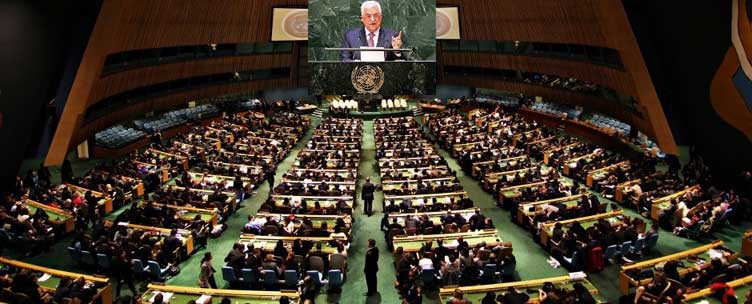


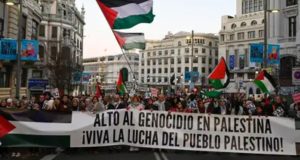
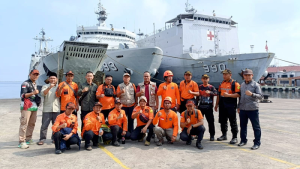
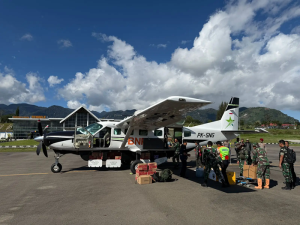
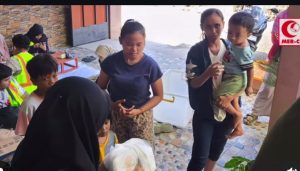


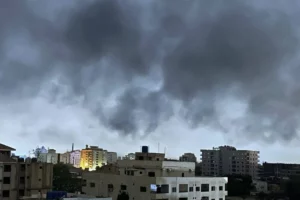




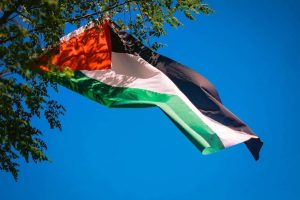












 Mina Indonesia
Mina Indonesia Mina Arabic
Mina Arabic